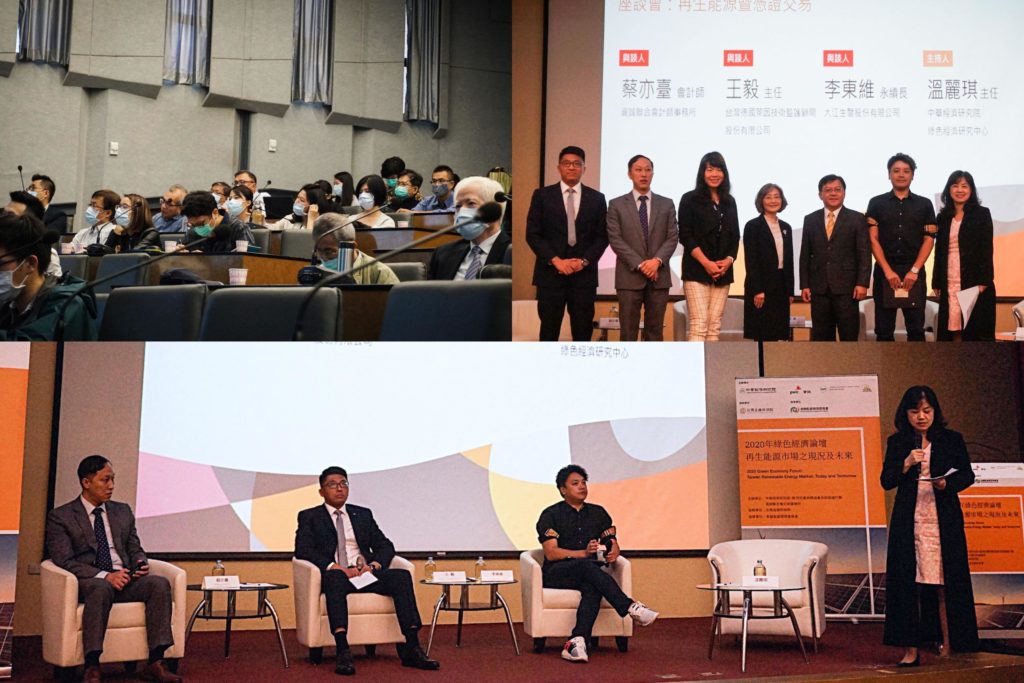[Event Report] 2020 Green Economy Forum: Taiwan Renewable Energy Market Today and Tomorrow 2020年綠色經濟論壇: 再生能源市場之現況及未來
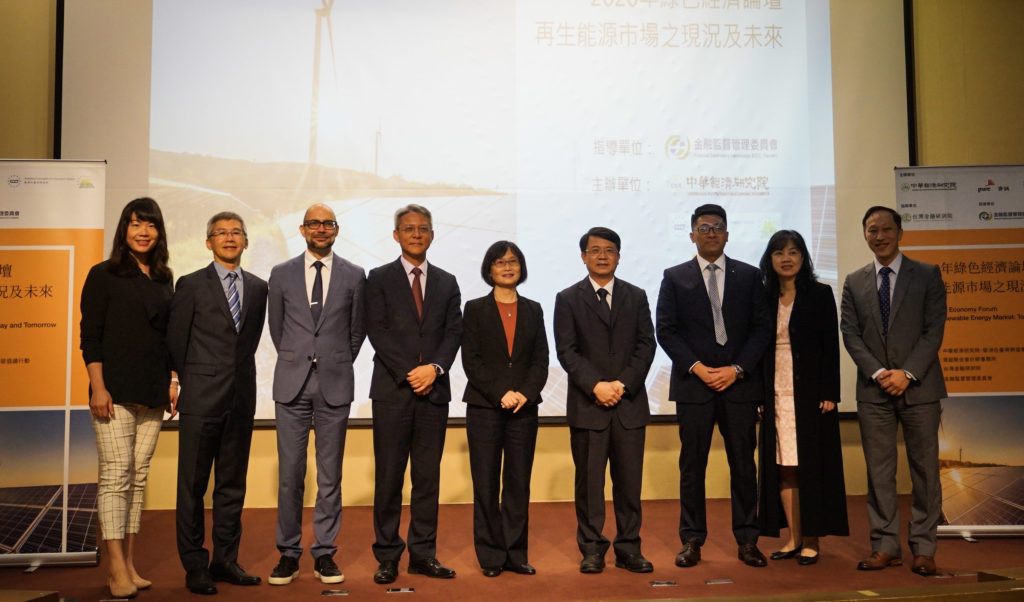
- Photo Gallery: Facebook
- Media Coverage: 綠色經濟論壇 歐洲商會:2025年台灣再生能源占比2成
On 30th Sept., the 2020 Green Economy Forum Taiwan Renewable Energy Market: Today and Tomorrow was successfully held at S. J. Chiang International Conference Hall of CIER. The half day forum attended 250 audience, bringing together experts in green finance and renewable energy to share experiences and discuss the financing environment, demand and supply of renewable energy and renewable energy trading models. The forum was c0-organised by the ECCT Low Carbon Initiative (LCI) together with the Chung-Hua Institution for Economic Research (CIER) and PricewaterhouseCoopers (PwC) Taiwan.
Opening remarks were made by Jane Chu, Vice Chairperson of the Financial Supervisory Commission (FSC); Chang Chuang-chang, Chairman of CIER; Bart Linssen, ECCT Executive Director and member of the LCI Steering committee and Joseph Chou, PwC Chairman. This was followed by presentations from representatives from government agencies and ECCT member companies.
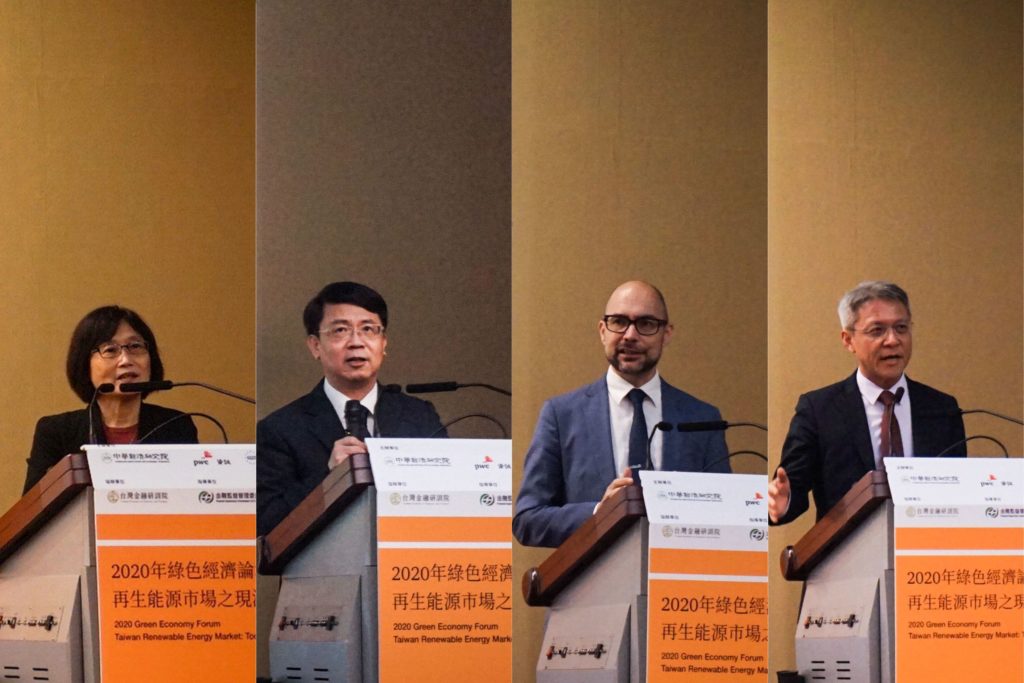 From left to right: FSC Vice Chairperson - Jane Chu; CIER Chairman - Chang Chuang-chang; ECCT Executive Director and member of the LCI Steering committee - Bart Linssen; PwC Chairman - Joseph Chou
From left to right: FSC Vice Chairperson - Jane Chu; CIER Chairman - Chang Chuang-chang; ECCT Executive Director and member of the LCI Steering committee - Bart Linssen; PwC Chairman - Joseph Chou
Eliza Li, Leader of Climate Change Services for PwC Taiwan, gave a presentationon the topic of global trends and Taiwan's new policies on green finance. She noted that regulatory requirements play a crucial role in the energy transition. For example, many governments have announced carbon reduction targets, plans to shut down coal-fired power plants over the next five years and phase out fossil-fuel vehicles over the next 30 years.
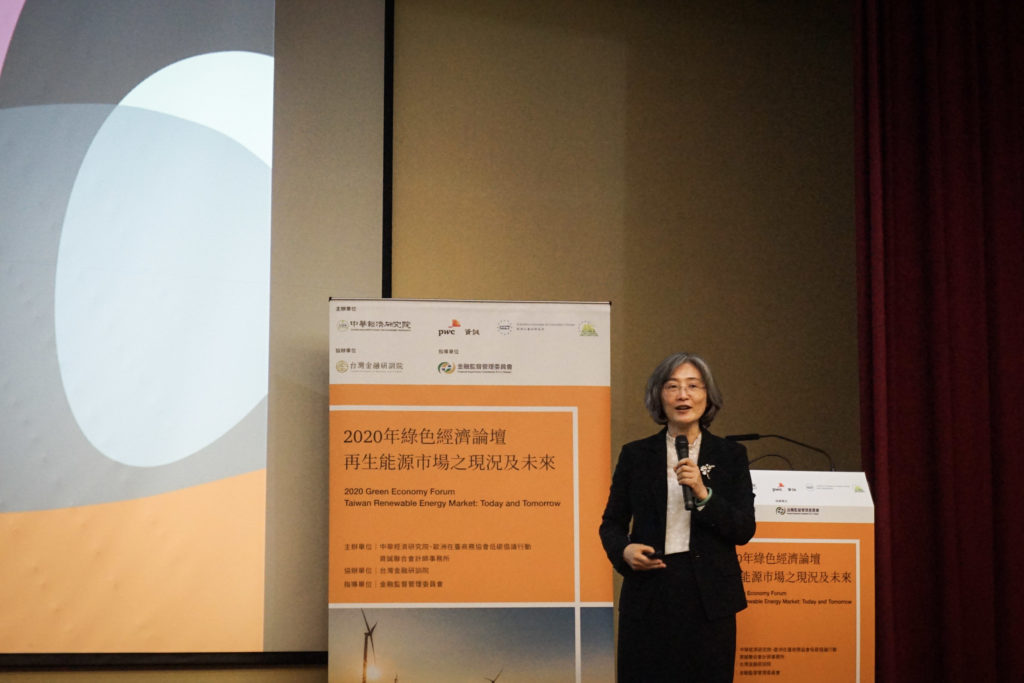 PwC Taiwan Climate Change Services Leader - Eliza Li
PwC Taiwan Climate Change Services Leader - Eliza Li
In order to enhance renewable energy innovation, the Executive Yuan approved the Green Finance Action Plan proposed by the Financial Supervisory Commission in 2017 and announced Green Finance 2.0 in 2020. Thanks to government support and due to global trends, the expectation is that financial resources will increasingly be injected into green industries and drive energy transformation in the future.
Many global corporations have committed to net zero carbon emissions and are already investing heavily in renewable energy to reach the goals. This will give added impetus to the development of the renewable energy sector. According to Li, 242 global corporations, including five from Taiwan, have joined RE 100 (and pledged to get 100% of their energy from renewable sources). Many investment institutions have incorporated environmental, social and governance (ESG) into their investment decisions. According to Li, as of July 2020, a total of 187 banks around the world have signed the Principles for Responsible Investment pledge, implying that the scale of assets under management under the PRI principle will reach US$103.4 trillion.
In his presentation, Denis Chiu, Corporate Banking Head from BNP Paribas Taiwan, spoke about sustainable finance and business policy from the perspective of a European bank's perspective. He noted how sustainability is shaping the new economy as climate change and social issues impact business, political leadership, regulatory changes are causing changes to business models, technology acceleration is facilitating a shift to cleaner technology and energy efficiency, more consumers, citizens and employees are demanding fairer investments and more environmentally-sustainable products. He noted that while financial institutions need to adapt to the new reality in order to survive, the green economy also represents a great opportunity. According to an estimate cited by Chiu, US$1.7 trillion worth of investments per annum will be needed to achieve the UN's 17 Sustainable Development Goals (SDGs). The speaker went on to describe how his bank is committed to sustainability, particularly through financing the energy transition.
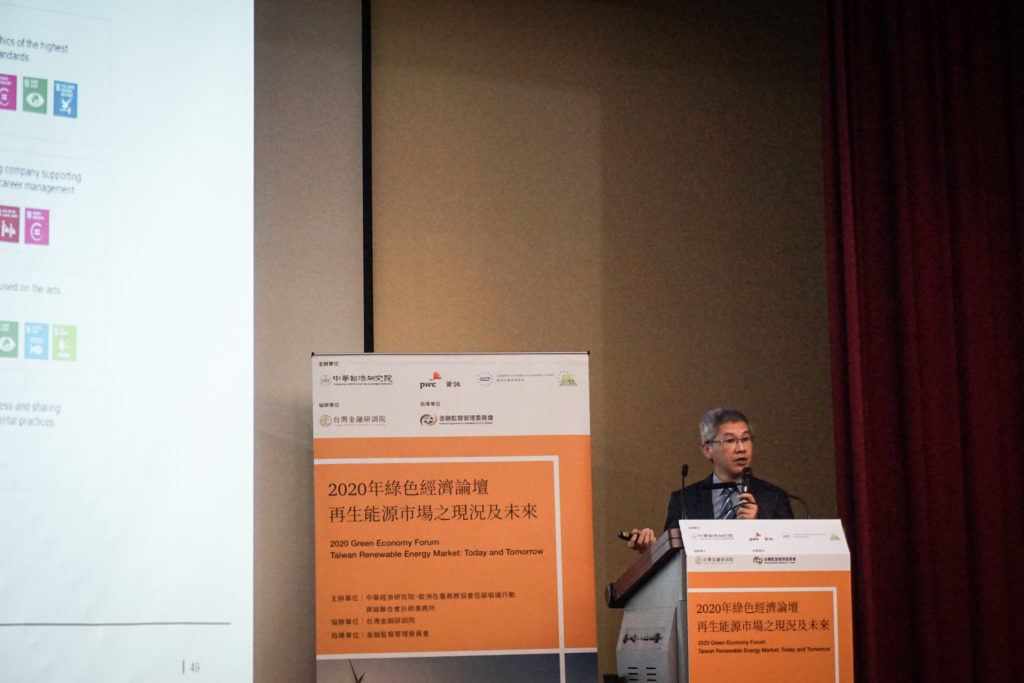 BNP Paribas Taiwan Corporate Banking Head - Denis Chiu
BNP Paribas Taiwan Corporate Banking Head - Denis Chiu
In his presentation Tsai Yi-tai, Leader of Renewable Energy at PwC Taiwan, spoke about how new legislation is going to affect large power users. According to new legislation, major power users (defined as those with power consumption of over 5 megawatts) must use or purchase 10% of needs from renewable energy sources. The speaker gave details on how to meet obligations as well as the tax benefits of investing in renewable energy or energy storage equipment.
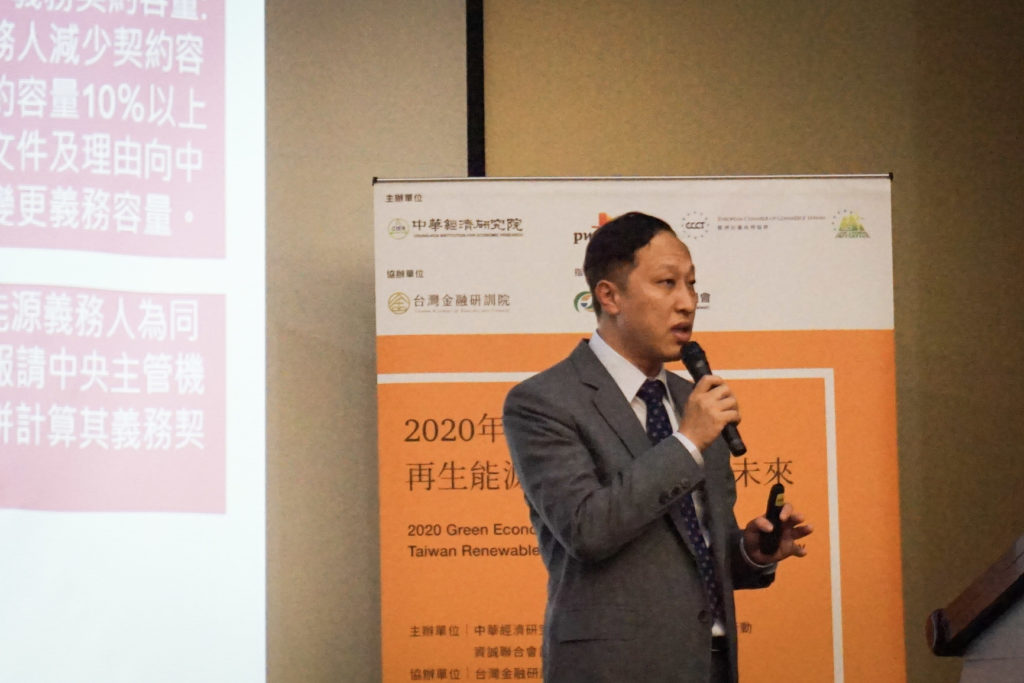 PwC Taiwan Renewable Energy Leader - Tsai Yi-tai
PwC Taiwan Renewable Energy Leader - Tsai Yi-tai
In his presentation, Remi Lee, Chief Sustainability Office of TCI spoke about some of the challenges and opportunities in renewable energy in Taiwan. TCI was one of the first Taiwanese companies to voluntarily join RE100 but it has proven difficult to make progress. According to Lee, his company has only reached 38% of its goal given a shortage of supply sources and the very early stage of energy trading in Taiwan. However the drop in prices of solar panels is making both building one's own facilities and PPAs more feasible.
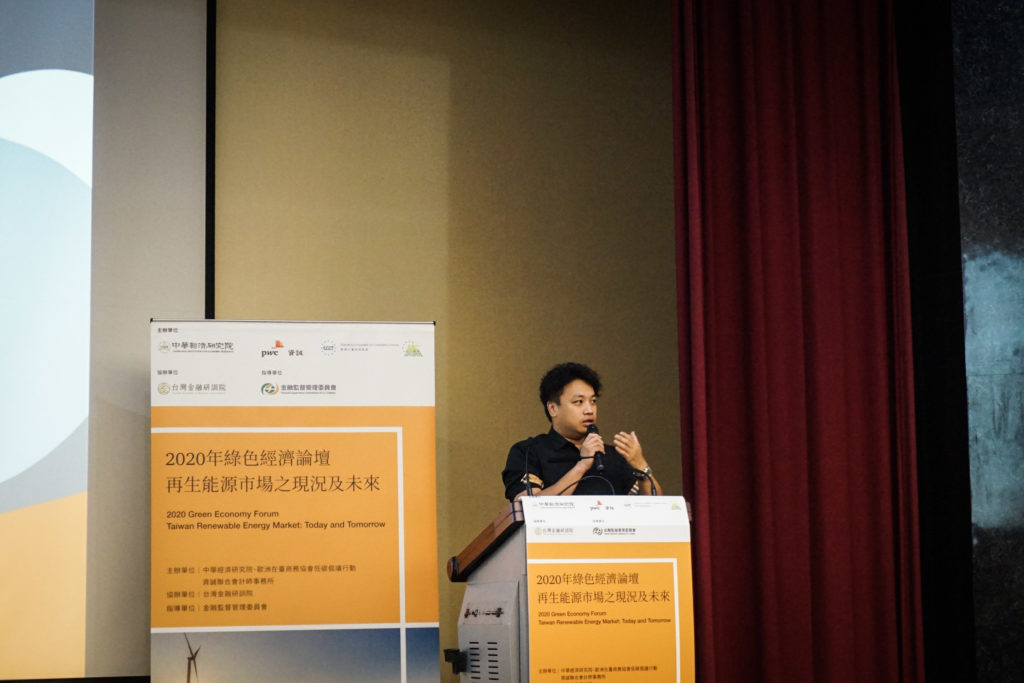 TCI Sustainability Office Chief - Remi Lee
TCI Sustainability Office Chief - Remi Lee
In his presentation, Tomas Tuominen, Senior Vice President, European PPA Lead – Green Investment Group of the Macquarie Group, gave a presentation on the future trends and prospects for renewable energy suppliers. He noted that while renewable energy projects used to be driven by subsidies, they are now increasingly selling power directly to large corporate consumers via Power Purchase Agreements (PPAs). The main challenges in structuring PPAs are off-takeability (does the PPA solve the offtaker's sustainability or other goals without undue complexity of risk?), bankability (does the PPA provide enough protections for lenders?) and investability (does the PPA provide a sufficient rate of risk-adjusted return for the investor?). The speaker concluded by sharing details of some of his company's recent successful renewable energy cases.
In his presentation, Huang Chih-wen from the Bureau of Standards, Metrology and Inspection (BSMI) gave an introduction to the National Renewable Energy Certification Center and renewable energy trading mechanism, particularly the use of Taiwan Renewable Energy Certificates (TRECs).
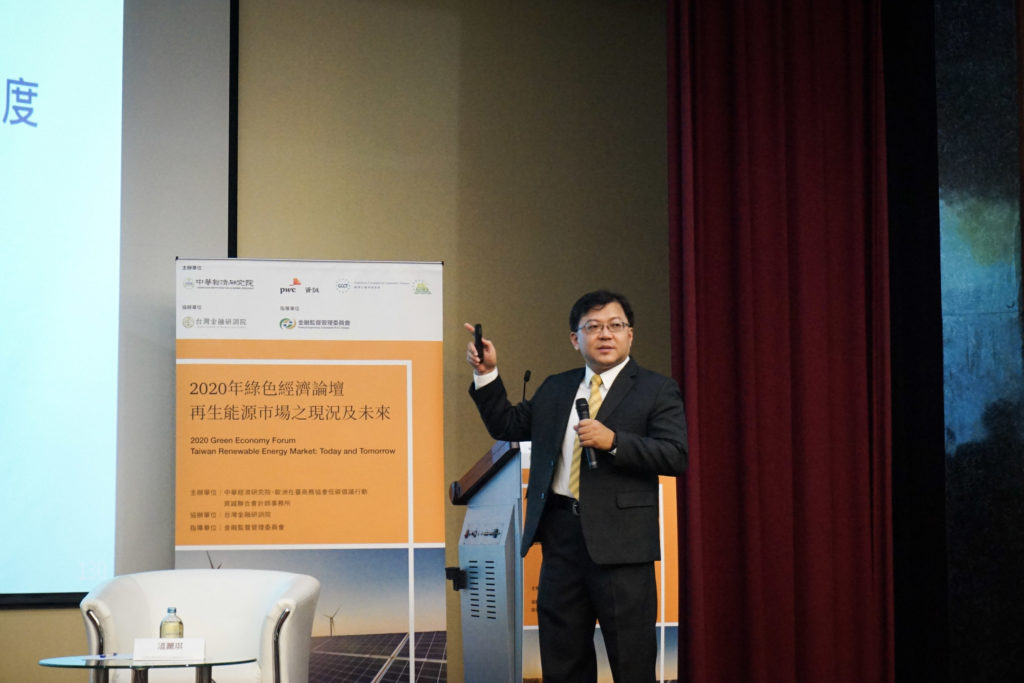 Bureau of Standards, Metrology and Inspection (BSMI) - Huang Chih-wen
Bureau of Standards, Metrology and Inspection (BSMI) - Huang Chih-wen
In his presentation, Frank Wang, Solar & Commercial Products Executive from TÜV Rheinland Taiwan spoke about development and technology/risk assessment of solar power plants. His presentation covered defect analysis of PV power plants and technical assessments of risks as well as solutions.
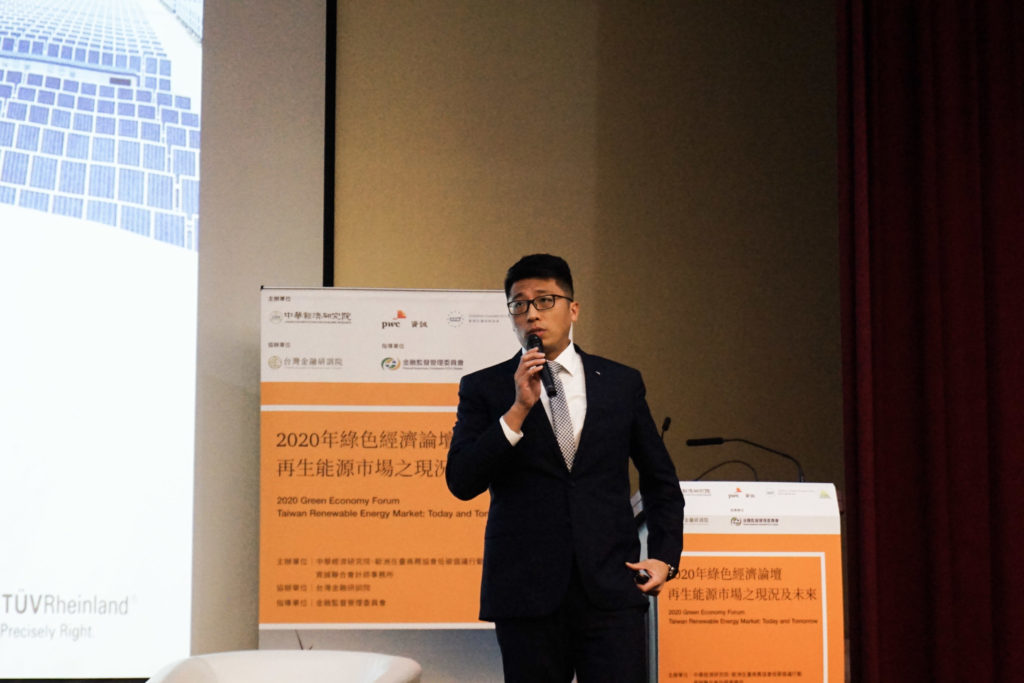 TÜV Rheinland Taiwan Solar & Commercial Products Executive - Frank Wang
TÜV Rheinland Taiwan Solar & Commercial Products Executive - Frank Wang